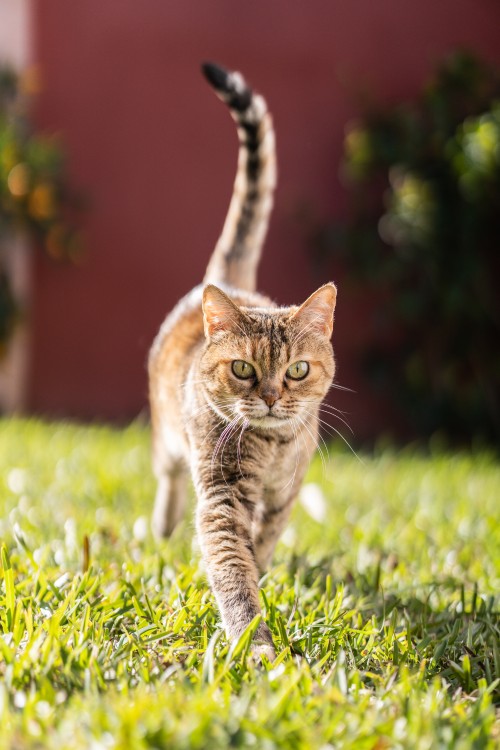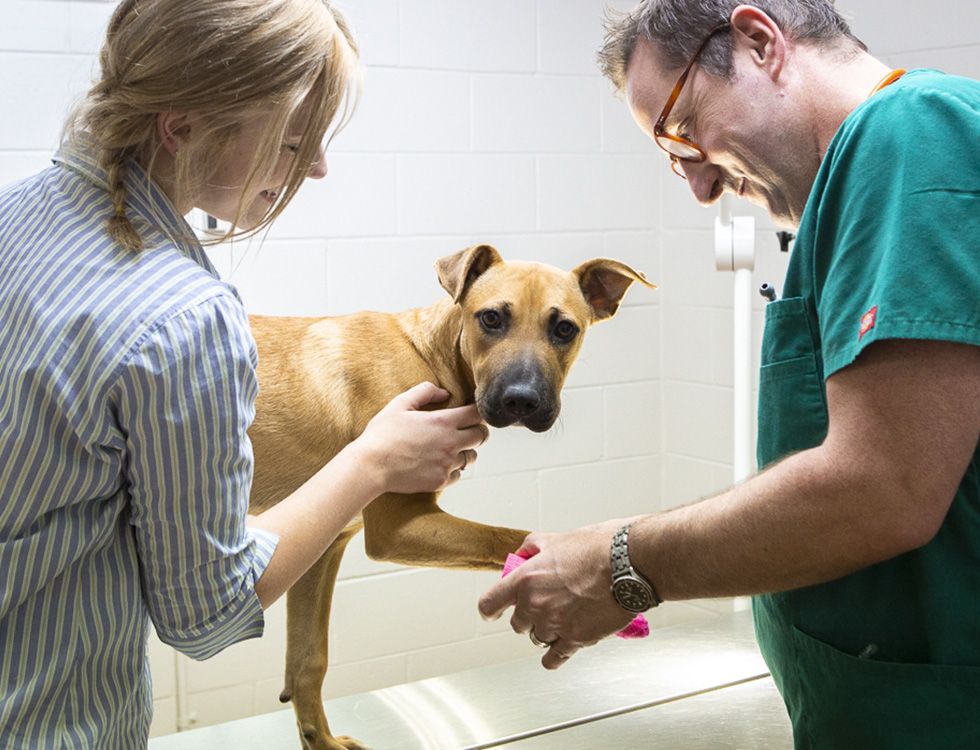Pet Vaccinations
At Hampton Park, we know pet vaccinations provide vital protection for your companion.
Prevention is the best medicine, and pet vaccines are the most effective way to keep our pets healthy and safe. While some diseases have no cure, others can be incredibly difficult and expensive to treat. That’s in addition to the toll it can take on your pet’s health for the rest of their life. Get your pet vaccinated regularly and safely with Hampton Park Vet to ensure your family is safe from these diseases.
There are a few common myths we’ve heard in our practice over the many years we’ve been serving the community. For example, my cat doesn’t go outside, so they can’t get sick. Even if your cat never goes into the wide-open world of Narre Warren South, pet vaccinations will protect them from diseases that can be transmitted through objects like shared food and water bowls. Have you ever pet one of the neighborhood cats or had them rub against your leg before you got home? That little bit of contact through you can be enough to get your own pet sick. It’s the same for dogs, too. Illnesses like kennel cough can be easily passed on from a seemingly healthy pet you run into on a walk or at the park.
How Do Pet Vaccines Work?
Common Cat Vaccines
Cat vaccinations that we commonly give at Hampton Park protect against:
Panleucopenia (FPL) is a potentially fatal infection in cats that attacks the lining of the gut and causes bleeding, vomiting, diarrhoea, dehydration, and other dangerous symptoms.
Cat Flu is a group of infections that lead to painful sores and infections in the mouth, throat, nose, and eyes. These infections can spread to the chest and lead to pneumonia. Once infected, cats can become lifelong carriers and may suffer relapses of their original symptoms or infect other pets.
Feline Immunodeficiency Virus (FIV) behaves much like the human version (HIV), though humans cannot become infected with it. Transmitted through bites, outdoor cats are especially at risk for contracting FIV. Since this virus attacks the immune system, cats with FIV are especially affected by any other illness or infection they may contract for the rest of their lives.

Common Dog Vaccines
At Hampton Park, we commonly vaccination your dog against:
Canine Distemper is a potentially fatal disease spread by a coughing, sneezing, or touching-distance infected pup. This nasty virus attacks the brain, lungs, and stomach, with symptoms ranging from runny eyes and nose to problems breathing to vomiting, diarrhoea, muscle tremors, and seizures.
Infectious Canine Hepatitis attacks the liver and spreads when your pup licks or chows down on an infected dog’s urine, faeces, or saliva. Symptoms include fever, abdominal pain, vomiting, and diarrhoea. There is no known cure, and it’s also commonly fatal in dogs.
Parvovirus is another highly contagious disease. It’s spread easily from dog to dog through their faeces. Signs of parvo are bloody vomiting and diarrhoea, though the potentially fatal infection can also cause brain and heart disease.
Canine Cough (or Kennel Cough) is actually a group of bacteria and viruses that can all lead to infectious laryngitis. It’s spread by airborne droplets and direct contact between pets. It’s a painful disease that causes infected dogs to cough constantly, often to the point of vomiting. It’s extremely common and may progress to pneumonia in unvaccinated and untreated pets.


Common Rabbit Vaccines
The most prevalent rabbit vaccine protects against Calicivirus. Calicivirus (also known as Rabbit Haemorrhagic Disease Virus or RHDV) is deadly to many rabbits. The disease is spread by mosquitoes and contact with infected rabbits’ urine, faeces, or saliva. Signs of it include lethargy, seizures, bleeding from the nostrils, or sudden death, especially in young rabbits up to 12 weeks of age.
Keep your pet safe with vaccinations
Caring For Life





